KENROKU-EN GARDEN
Kenroku-en Garden is one of the three most famous gardens in Japan.
It is located in the city of Kanazawa on the Sea of Japan, and has been designated as a Cultural Property and National Site of Scenic Beauty since 1922.
It is a strolling-style landscape garden on a slope facing the Kanazawa Castle, and was originally designed as the castle garden. It was initially developed in the late 1600s and went through various renovation stages. The Kenroku-en Garden was opened to the public in 1874.
The visit of this garden took place mid-March, at a time when the snow was melted but all the elaborate winter protection structures were still in place. These structures are set up in the fall and taken down in the spring. It is very labor-intensive work, and when in place the structures allow for very unique photos.
No labels were provided for tree identification in this garden, and in the winter when deciduous trees are bare, identification would already be challenging.
There is no lawn in this garden – the whole grounds are covered with various types of mosses. Not having colorful blooms to attract the eye at that time of the year is inciting the visitor to rather focus on the structures, the features and the general landscaping of the garden – in addition to the trees and their supports.
SNOW PROTECTION
Kanazawa receives around 280 inches (711 cm) of snow per year, and much of it is wet snow. That’s a LOT of weight on tree branches, shrubs and hedges.
The structures used to shelter those plants from the snow are called 'yukitsuri', and are made of bamboo poles and ropes, and tied with several rounds of rope, mostly in a tent-like fashion. This type of conical structure lets the snow slide along it without accumulating on the branches.
These structures change the whole appearance of the garden in the winter, and it is difficult to take photos without having any of them in the picture.
However it can also be said that they have their own aesthetics and are an intrinsic – albeit temporary – part of the garden for several months every year.
WINTER PROTECTION - YUKITSURI
 |
| Along a stream |
 |
| Permanent and winter protection |
 |
| For large shrubs |
 |
| For small shrubs |
 |
| More shrubs |
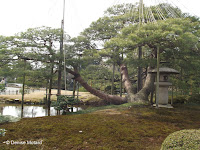 |
| Permanent supports and yukitsuri |
 |
| Reaching high |
 |
| Protected hedges |
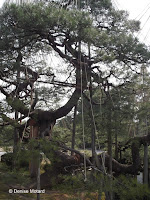 |
| Supports and yukitsuri |
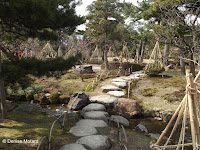 |
| Stone path |
 | |
| Yukitsuri |
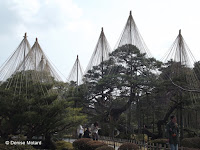 |
| Winter tents |
The Kenroku-en Garden also features many trees with permanent staking.
 |
| Hollow trunk supported |
 |
| This one is in a barrell |
 |
| From a different angle (1st photo) |
 |
| In the middle of the road |
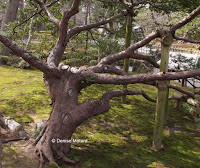 |
| For small trees too |
 |
| With a mountain view |
 |
| Supporting a horizontal trunk |
 |
| In the water |
 |
| The most supported tree |
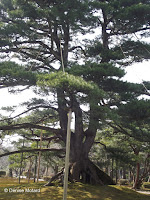 |
| Neagarinomatsu pine |
 |
| The Neagarinomatsu pine history |
 |
| Near a pond |
 |
| Reaching high |
 |
| Shrub support |
 |
| Staked pine |
 |
| Supports in the water |
 |
| Treillised vine |
 |
| A valuable horizontal branch |
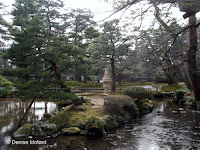 |
| A gorgeous view |
 |
| Exposed roots in moss |
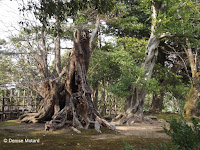 |
| Tormented dead tree base |
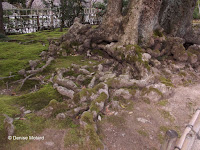 |
| Knotty roots |
 |
| Hedge-lined small river |
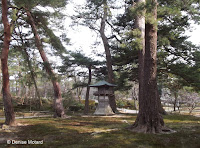 |
| Japanese lantern |
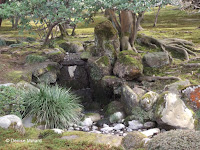 |
| Moss and rocks |
 |
| Hollow trunk, still alive |
 |
| Moss, ground covers, no lawn |
 |
| New growth on old stump |
 |
| Moss-covered tree base |
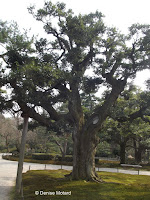 |
| Old tree with a 'cane' |
 |
| Slab bridge over stream |
 |
| Preserved Japanese pine |
 |
| Stream crossing |
 |
| Stupa and fall |
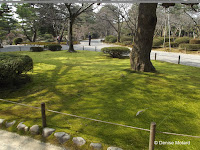 |
| This is moss, not a lawn |
 |
| Tree roots on forest floor |
 |
| Venerable root globe |
 |
| Stupa in the garden |
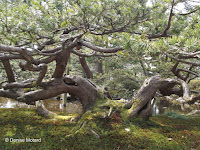 |
| Trained to look this way |
 |
| The 'Two Lovers' trees |
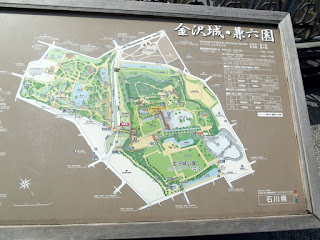 |
| Plans of garden and Kanazawa Castle |
For beautiful paintings of landscapes in various seasons, please visit this website:
https://www.clemencestlaurent.com/
HOWLING ICY WINDS - Trying to rest on the couch while listening to the window cracking as if it's going to burst open, and listening to the wind in the wires on the side of the house. Feeling so good in the warmth of the living room while, a mere few feet outside that wall, I'd freeze in a few minutes from exposure....
